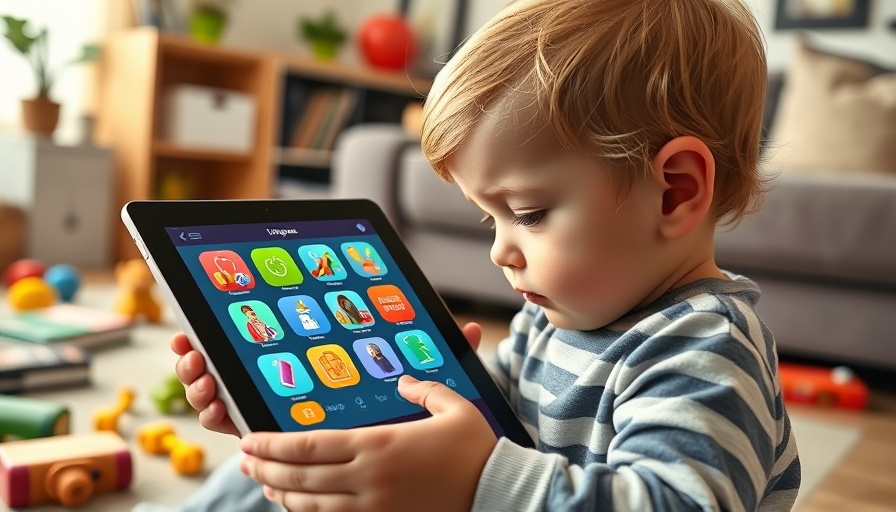
The Hidden Impact: Screen Time and Language Development
In today's digital world, the debate over toddler screen time continues to gain momentum, especially among parents concerned about its effects on child development. Recent studies reveal a concerning trend: as the amount of screen time increases for toddlers, so too do delays in their language and problem-solving abilities. This is particularly alarming given that the early years are crucial for cognitive and language development.
Research Insights on Screen Time and Delays
A recent scoping review conducted by researchers in South Africa illuminated the complex relationship between screen time usage and language development. Factors such as the type of content, the duration of exposure, and the presence of co-viewing by adults were shown to significantly influence outcomes. For instance, children exposed to educational programming, like “Sesame Street,” demonstrated better vocabulary acquisition compared to those watching passive content such as toy unboxing videos on YouTube.
Conversely, a report from the Journal of the American Medical Association highlighted a direct correlation between increased screen time and developmental delays in 1-year-olds, indicating that continued exposure through ages 2 to 4 resulted in impairments in both communication and social skills. These findings echo previous studies showing that more time in front of screens is associated with a decline in the richness of verbal interactions that are essential for language development.
Understanding Active vs. Passive Screen Time
Not all screen time is created equal. Experts differentiate between active and passive screen time; the former involves interactive content that engages the child’s mind, while the latter is the consumption of content without interaction. Research suggests that toddlers benefit more from engaging with media that prompts them to think critically or interact with the material, rather than simply passively observing.
For instance, studies have shown that children who co-view educational media with adults are more likely to ask questions and learn vocabulary. Active engagement with content not only promotes language skills but also fosters social interactions that are critical for developing interpersonal communication skills.
Parenting in the Age of Screens
As parents navigate the challenges of screen time, it is essential to embrace a balanced approach. The World Health Organization recommends that children aged 2 to 5 should be limited to one hour of high-quality programming per day. This paradigm shift encourages toddlers to explore their environment, engage in play, and interact with caregivers more frequently, all of which are activities fundamental to healthy language development.
The Importance of Co-Viewing and Communication
Co-viewing not only allows parents to monitor the media content but also serves as a rich opportunity for interaction. Engaging in discussions about what they see on-screen can reinforce vocabulary and encourage critical thinking. Pediatrician Cindy Gellner emphasizes the significance of parental involvement, noting that active participation can significantly mitigate the negative effects of screen exposure.
Moving Forward: Recommendations for Parents
To help toddlers thrive in a media-saturated world, parents are encouraged to follow these guidelines:
- Choose high-quality educational programming that aligns with developmental goals.
- Limit screen time to the recommended guidelines set by health professionals.
- Engage in co-viewing to enhance language acquisition through interaction.
- Encourage play and exploration outside of screen time for balanced development.
Final Thoughts
In conclusion, while screens are an integral part of modern life, it is crucial for parents to be mindful of their children's exposure, particularly in the formative years. Armed with knowledge about the effects of screen time, parents can foster healthier environments that support the rich language development their children deserve. Ultimately, a balanced approach to screen time can lead to both engaging and educational experiences for toddlers.
 Add Row
Add Row  Add
Add 



Write A Comment